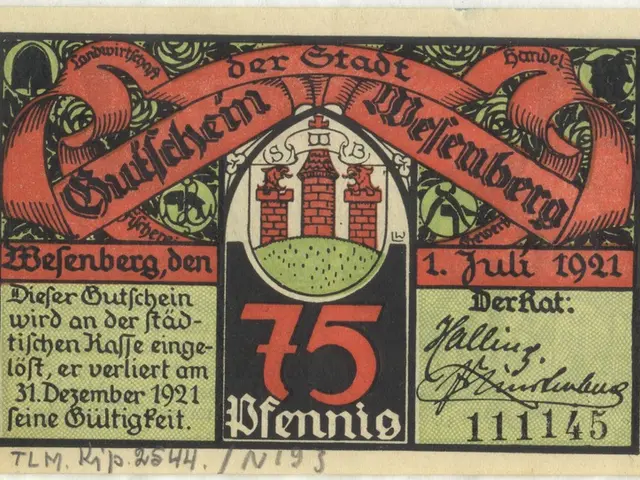Wadephul's Journey to Israel: Prioritizing Hostage Release
Hostage return ranks high on Wadephul's agenda
In his maiden trip to Israel, Foreign Minister Johann Wadephul found himself treading a delicate balance between affirming Berlin's solidarity with Israel and expressing concerns over the country's firm approach in the Gaza Strip. However, the focus of his visit was crystal clear.
Wadephul, during his first visit as Foreign Minister, held talks with relatives of hostages held by Hamas. He emphasized that the return of these individuals was Germany's top priority. "It's a priority for me and my government to take care of your relatives," he stated on Saturday, according to X's video footage. He remarked that this meeting was his initial appointment in Israel.
Wadephul stated, "It's hardly believable what the Hamas abductees and their families have endured for over 19 months." He underscored the importance of the release of all hostages.
On October 7, 2023, Hamas and its allies attacked Israel, resulting in approximately 1,200 casualties in the Gaza Strip and the abduction of 251 people. At present, 58 hostages remain captive by the Islamists, with 34 already confirmed dead by the Israeli military. The German government estimates that fewer than ten individuals of German descent still linger in the Gaza Strip.
Wadephul Stands in Shame at Yad Vashem
On Sunday, Wadephul commemorated the six million Jews murdered by Germany at Yad Vashem, the Holocaust memorial. As a CDU politician, he laid a wreath and wrote in the memorial's guestbook, "I stand here with horror and shame as Germany's Foreign Minister. The horror of the Shoah was orchestrated in German, planned by Germans, and executed by Germans." He stressed that it is "our, it is my perpetual responsibility to maintain awareness of this immense injustice committed by Germany" and to combat antisemitism.
Wadephul, alongside his Israeli counterpart Gideon Saar, was shown an active battery of Israel's Arrow 3 air defense system earlier. Wadephul received an introduction to the system, which Germany will also use in the future. Germany and Israel maintain a close partnership in the defense sector.
The German air force strives to achieve initial operational capability of the modern missile defense system this year, filling a gap in air defense. The "Arrow" can destroy incoming missiles at heights of up to over 100 kilometers, outside the atmosphere and in the beginning of space. This capability aims to neutralize enemy missiles effectively. Arrow 3 is planned to be stationed at three different locations in Germany.
Navigating Diplomatic Challenges
Throughout his visit, Wadephul has scheduled meetings with Foreign Minister Saar, Prime Minister Benjamin Netanyahu, and Palestinian Prime Minister Mohammed Mustafa in Ramallah. These political discussions will likely reinforce the new traffic light government's basic solidarity with Israel. At the same time, this trip serves as a diplomatic trial: How candidly will he voice criticism of Israel's Gaza approach? The relationship between his predecessor Annalena Baerbock of the Greens and Netanyahu was recently described as strained, with reports of heated exchanges between the two.
These talks may also involve a Dutch initiative to examine whether Israel is still adhering to the basic principles of the so-called Association Agreement between the EU and Israel, which emphasizes respect for human rights. This scrutiny arises from Israel's refusal to allow any humanitarian aid to the Gaza Strip since early March, citing Hamas's alleged benefits from such aid. This Dutch initiative is tentatively set for discussion among EU foreign ministers in the near future.
Source: ntv.de, gho/dpa/AFP
Behind the Scenes:
International efforts are mainly driving the negotiating table for the conflict in Gaza, with Hamas proposing a comprehensive deal involving the release of all Israeli hostages and Palestinian prisoners, alongside a full ceasefire and the withdrawal of IDF troops from Gaza. Germany supports Israel's security but emphasizes the need for humanitarian aid in Gaza and the observance of international humanitarian law. Germany's role primarily involves supporting diplomatic efforts to de-escalate the situation rather than directly negotiating with Hamas. This balanced approach may pose challenges in maintaining diplomatic harmony in the region.
- The European Union, through Foreign Minister Johann Wadephul, is committed to a comprehensive approach to the fight against terrorism, including the situation in war-and-conflicts zones like Gaza, demonstrated by his priority on the release of hostages held by Hamas.
- During his visit to Israel, Wadephul, while emphasizing the importance of the release of hostages, also met with Israeli officials for political discussions, navigating diplomatic challenges in balancing solidarity with criticisms of Israel's Gaza approach.
- The Israeli-Palestro Lausanne Accords, which encompasses the Association Agreement between the EU and Israel, encourages the respect for human rights, a principle that could be scrutinized in future EU foreign minister discussions, due to Israel's refusal of humanitarian aid to the Gaza Strip.
- German Foreign Minister Wadephul, during his visit, showed support for Israel's security while also advocating for humanitarian aid in Gaza, embodying a balanced approach aimed at de-escalating the situation, where international efforts, like those of the Dutch, are key in driving negotiations for a comprehensive deal involving the release of hostages and prisoners.
- In general news and crime-and-justice sectors, it is crucial to highlight the ongoing struggle for the release of hostages, the plight of those captive, and efforts taken by countries like Germany to ensure their safe return, while also addressing the political complexities involved in resolving conflicts such as the one in Gaza.








